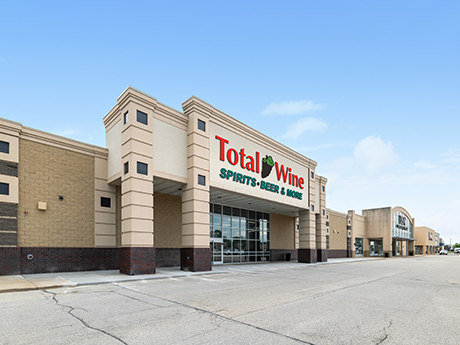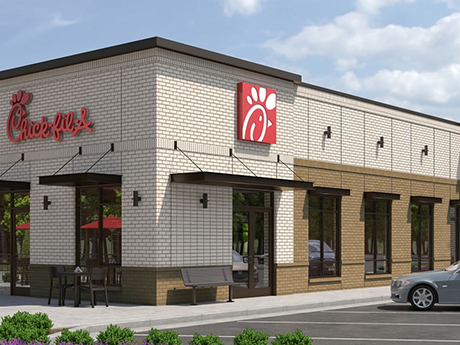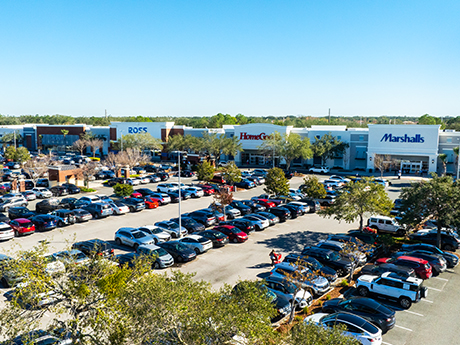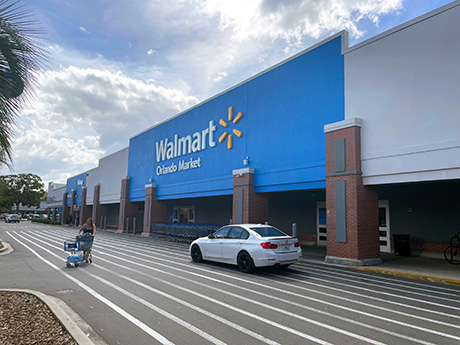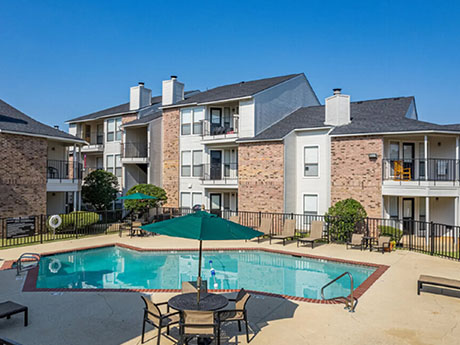GLENVIEW, ILL. — Bottling Group LLC, operating as Pepsi Beverages Co., a division of PepsiCo. Inc., has leased Building 10 at The Logistics Campus in suburban Chicago’s Glenview. The lease for the 351,520-square-foot build-to-suit facility commences in February. Dermody is the property owner. Bottling Group LLC manufactures, distributes and sells a portfolio of nonalcoholic beverages, including soft drinks, bottled water, energy drinks and fruit juices. Site work for Building 10 is underway with delivery planned for the first quarter of 2026. Colliers represented Dermody, and Cresa represented Pepsi in the lease. The Logistics Campus is a master-planned, 10-building campus totaling 3.2 million square feet. Dermody recently completed construction on Phase 1, which consists of more than 1.2 million square feet across five buildings.
Property Type
ROCHESTER, MINN. — Mid-America Real Estate Corp. has brokered the sale of Broadway Commons, a 136,757-square-foot shopping center in Rochester near the Mayo Clinic. The property is fully leased to Total Wine & More, DSW, Petco, Five Below, Michaels, Famous Footwear and Boot Barn. Kohl’s and Walmart are shadow anchors. Joe Girardi, Emily Gadomski, Amy Senn and Bryce Thompson of Mid-America represented the seller, Epic Real Estate Partners. The buyer and sales price were not provided.
KANSAS CITY, MO. — Bow River Capital, a Denver-based alternative asset management firm, has acquired Brookside Commons in Kansas City. Located near the Country Club Plaza, the 212-unit multifamily community was built in 2023. The transaction, which marks Bow Capital’s third multifamily acquisition in the Kansas City market, was completed at more than a 24 percent discount on today’s replacement cost. Berkadia originated acquisition financing through Fannie Mae. The seller and sales price were not provided.
CHICAGO — The Boulder Group has arranged the $3.3 million sale of a single-tenant, net-leased Chick-fil-A property at 11301 S. Corliss Ave. in Chicago. The newly constructed building, which features a drive-thru, is operating under a 15-year ground lease with 10 percent rental escalations every five years and eight five-year renewal options. The property is positioned directly west of I-94 and at the southeast corner of the newly revitalized Pullman Park development. Randy Blankstein and Jimmy Goodman of Boulder Group represented the seller, a real estate developer in Chicago. The buyer was a local private investor. Today, there are nearly 3,000 Chick-fil-A locations across 48 states, Canada and Puerto Rico.
Core Spaces to Break Ground on 2,350-Bed Mixed-Use Development Near University of South Carolina
by John Nelson
COLUMBIA, S.C. — Core Spaces is set to break ground on ōLiv Columbia, a 2,350-bed mixed-use development located at 1401 Main St. near the University of South Carolina campus in Columbia. The project will include two towers: one 27-story building offering market-rate apartments and a 22-story student housing tower. The property will also feature a 1,600-space parking garage and retail space on the ground level. Construction is expected to begin this fall with completion scheduled for summer 2028. The development team includes Juneau Construction Co. and Dwell Design Studios.
WINTER GARDEN, FLA. — CBRE has brokered the sale of Winter Garden Village, a 629,326-square-foot shopping center located at 3251 Daniels Road in Winter Garden, a western suburb of Orlando. Dennis Carson, Casey Rosen, Michael Etemad and Sriram Rajan of CBRE represented the seller, Beachwood, Ohio-based SITE Centers Corp., in the transaction. The buyer and sales price were not disclosed, but Orlando Business Journal reports that an affiliate of New York City-based RREEF Property Trust purchased the center for $165 million. Curbline Properties Corp., an affiliate of SITE Centers, retained 130,563 square feet of single- and multi-tenant outparcels at Winter Garden Village. The power retail center was 89 percent leased at the time of sale to tenants including Bealls, Best Buy, Burlington, Marshalls/Homegoods, Ross Dress for Less and Ulta Beauty.
ORLANDO, FLA. — Colliers has negotiated the sale of the Shoppes at South Semoran, a 103,830-square-foot retail center located in Orlando, six miles directly north of Orlando International Airport. Originally built in 1986, the property was renovated in 2013 with façade enhancements, as well as signage and parking lot improvements. Walmart Neighborhood Market anchors the property, which was 99 percent leased at the time of sale. Additional tenants include Dollar Tree, Wendy’s and Suncoast Credit Union. Brad Peterson and Whitaker Leonhardt of Colliers represented the seller, an affiliate of Core Investment Properties Fund, in the transaction. The buyer was an affiliate of Newport Capital Partners. Ben Greazel, also with Colliers, arranged acquisition financing through Ameris Bank. The sales price and loan amount were not disclosed.
Dwight Mortgage Trust Funds Loans for Two New Build-to-Rent Communities in Georgia Totaling $44.3M
by John Nelson
AUBURN AND PORT WENTWORTH, GA. — Dwight Mortgage Trust has financed two bridge loans totaling $44.3 million for two new build-to-rent (BTR) communities in Georgia. The assets include The Station at Kentmere in Auburn and Waterside at Rice Hope in Port Wentworth. The borrower was ARK Homes for Rent. The Station at Kentmere is a 149-unit townhome community featuring three-bedroom residences, all with one-car garages and two-and-a-half bathrooms. Amenities include a modern clubhouse with an indoor lounge, fitness center, resort-style pool with sun deck, outdoor entertainment and picnic areas and grilling stations. Waterside at Rice Hope comprises 103 three-bedroom townhomes, each with two-and-a-half-bathrooms and one-car garages. Amenities include a clubhouse, playground, lap pool, lazy river, fishing pond and grilling areas.
Reynolds Obtains $23.2M Agency Refinancing for Apartment Community in Bossier City, Louisiana
by John Nelson
BOSSIER CITY, LA. — New Jersey-based investment firms Reynolds Asset Management has obtained a $23.2 million Fannie Mae loan for the refinancing of Preston Place, a 272-unit apartment community located at 400 Preston Blvd. in Bossier City, a suburb of Shreveport, La. Allan Edelson of Walker & Dunlop arranged the financing. Devli Real Estate is a joint venture partner of Reynolds for Preston Place. Reynolds acquired Preston Place in 2023 for $23.7 million, and renovations began immediately after the acquisition. Originally constructed in 1985, Preston Place sits on eight acres and comprises a mix of 133 one-bedroom apartments, 138 two-bedroom apartments and one three-bedroom apartment.
By Andrew Jacob, Colliers The Cincinnati/Northern Kentucky industrial market demonstrated notable resilience in the second quarter of 2025, balancing strong long-term fundamentals with cautious short-term sentiment. Amid national headlines of slowing industrial demand and heightened uncertainty, the region continues to distinguish itself with a combination of strategic location, steady demand and disciplined development. Market fundamentals At the close of the second quarter, the market’s total inventory stood at approximately 293.6 million square feet, supported by a healthy vacancy rate of 5.2 percent, which remains below the national average of 7.1 percent. Bulk warehouse asking rates have remained relatively steady at $5.95 per square foot, reflecting a market rebalancing after several years of oversupply from robust development activity. In contrast, flex space asking rates continue to climb, now averaging $8.11 per square foot. This upward pressure is fueled by a scarcity of new supply — driven by land constraints and elevated construction costs. The market recorded 539,000 square feet of positive net absorption in the second quarter, bringing the year-to-date total to over 1 million square feet. This consistent absorption highlights enduring occupier demand despite broader caution in the national market. New construction activity continued at a measured pace, with 2 …



